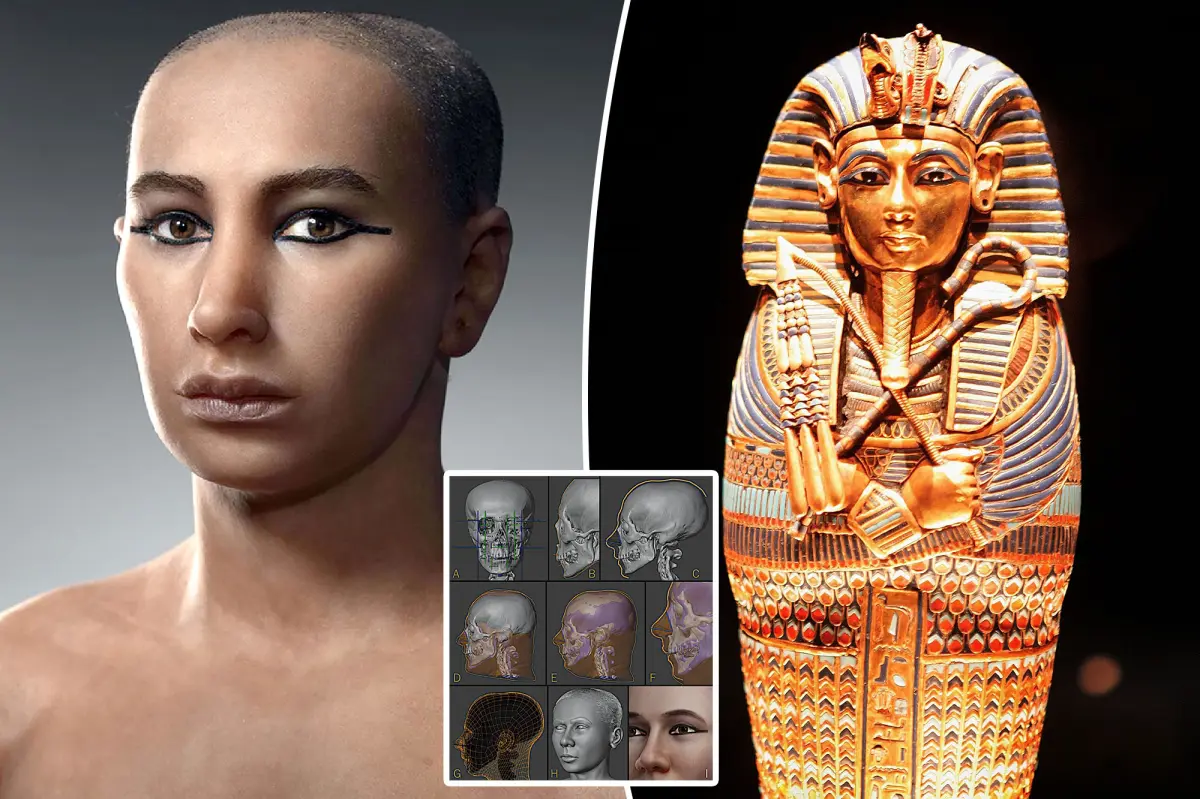pivot62.com – The story of King Tutankhamun, also known as Tutankhamen or Tut, is one of the most captivating tales from ancient Egypt. His reign, which began around 1332 BCE, was marked by his youth and the mystery surrounding his untimely death. Despite his relatively short rule, Tutankhamun’s legacy has endured for millennia, largely due to the discovery of his almost intact tomb in the Valley of the Kings by Howard Carter in 1922.
The Early Life of Tutankhamun
Born into the 18th Dynasty of Egypt, Tutankhamun was likely the son of Akhenaten, a pharaoh known for his radical religious reforms. Tutankhamun’s birth name, Tutankhaten, reflects the Atenist religion promoted by Akhenaten. After his father’s death, the young pharaoh, possibly around the age of nine, inherited a throne amidst a country divided by religious and political turmoil.
The Reign of a Boy King
Tutankhamun’s reign is notable for the restoration of traditional Egyptian religious practices, which had been disrupted by his father’s monotheistic reforms. He changed his name from Tutankhaten to Tutankhamun, symbolizing his rejection of the Aten and his return to the worship of Amun, the chief deity of the traditional Egyptian pantheon. Despite his efforts to stabilize the country, Tutankhamun’s reign was brief, lasting only about ten years, and he died at a young age, possibly in his late teens.
The Mystery of His Death
The cause of Tutankhamun’s death has been a subject of much speculation and study. Initial theories, including murder, have been largely debunked by modern forensic analysis. It is now believed that Tutankhamun died from complications following a broken leg, which may have been exacerbated by a genetic disorder such as malaria or a form of osteogenesis imperfecta.
The Discovery of His Tomb
The discovery of Tutankhamun’s tomb by Howard Carter in 1922 was a monumental event in the field of Egyptology. The tomb, designated KV62, was found largely untouched by thieves, containing an unprecedented wealth of artifacts and treasures. The discovery not only provided invaluable insights into the art, culture, and funerary practices of ancient Egypt but also sparked a global fascination with the “boy king” and the curse of the pharaohs.
The Legacy of Tutankhamun
Tutankhamun’s legacy extends far beyond his reign. The discovery of his tomb has had a lasting impact on the study of ancient Egypt and has contributed significantly to our understanding of Egyptian civilization. Moreover, the story of the boy pharaoh continues to captivate the public imagination, making him one of the most famous figures from the ancient world.
Conclusion
King Tutankhamun, the boy pharaoh, remains an enigmatic figure from ancient Egypt. His reign, though brief, marked a significant period of transition and restoration. The discovery of his tomb has not only provided a glimpse into the life of an ancient Egyptian king but has also fueled ongoing research and fascination with the culture and mysteries of ancient Egypt.
